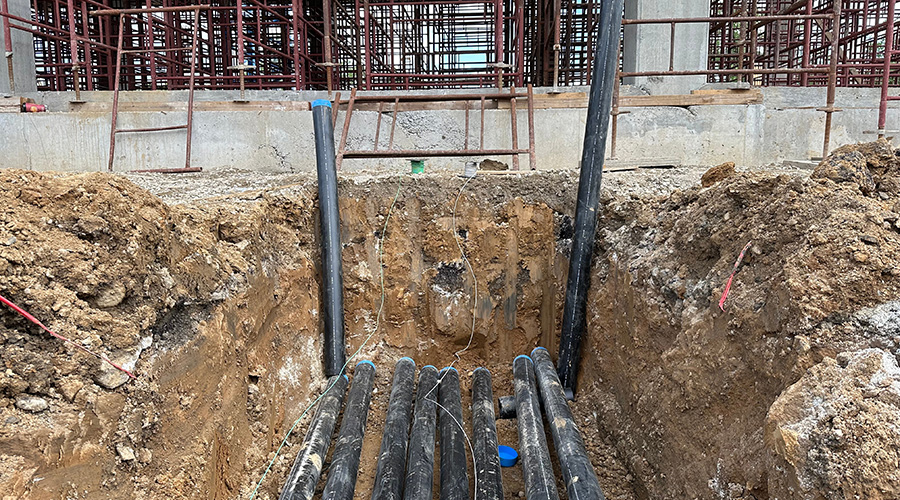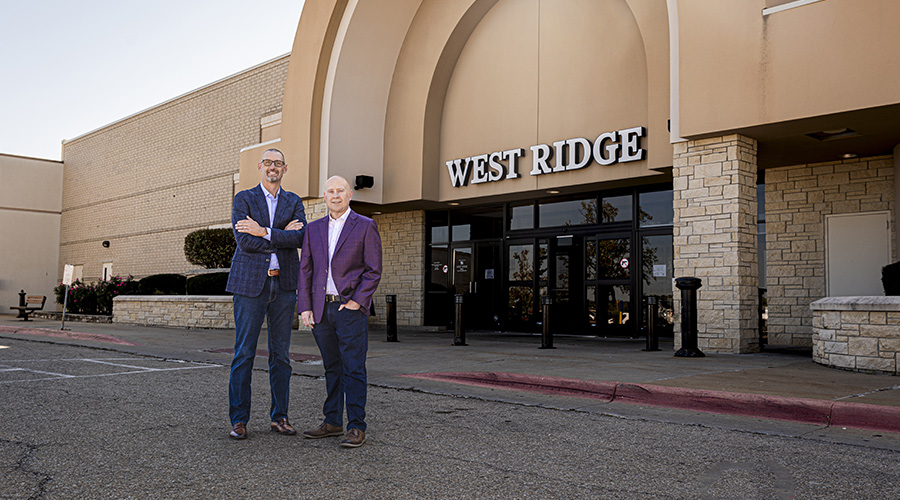CRE Facilities Continue to Evolve
From AI to ESG, CEOs chime in on some of the industry’s most significant trends
By Kevin Christenson, Contributing Writer
The commercial real estate (CRE) services industry is comprised of multidisciplinary platforms that provide brokerage, capital markets, property and facilities management, appraisal and other services to real estate owners. Today, CEOs of the largest CRE services companies are juggling a number of concerns. Since the COVID-19 pandemic, leaders have been forced to reassess their business models due to a tight labor market, heightened demand for environmental, social and governance (ESG) reporting, and mass changes to how we work.
CEOs of CRE service companies are learning to handle their rapidly changing work environment especially as they work through the rapid advancement of technology and a growing Generation Z (Gen Z) workforce. According to a recent survey from EY that surveyed the CEOs of the largest CRE services companies globally on these topics, concerns on the struggling office market, adoption of AI technology, talent retention and growing ESG priorities are the key disruptors for the industry.
A struggling office market
Survey respondents noted a possible economic downturn as a top concern, with the office asset class at the center of the distress conversation. With more adopting hybrid work policies, demand for office space is softening, resulting in higher vacancy rates and higher volumes of sublease space.
According to the Ernst & Young (EY) 2023 Future of Workplace Index survey, 67 percent of companies are using a hybrid workplace strategy for their employees. The shrunken demand for leased office space has resulted in declining property valuations and associated demand for property management services.
The EY commercial real estate CEO pulse survey found an overwhelming majority of respondents feel that the office market will continue to be strained over the next three to five years. One CEO noted: “It will get worse for a while until some of the stock goes away and employers regain the power to require higher office attendance.”
Many feel older, under-amenitized offices in need of capital upgrades will fail to keep up with newer, more amenity-centered and sustainably constructed office space. When asked about the former, about 90 percent of respondents indicated that under-invested offices would need to be carefully evaluated for the highest and best use in the current environment.
“Class B and C building (depending on their location) will most likely need to be repositioned,” says one of the polled leaders, while another noted: “Redevelopment and change of use opportunities — but the but the asset class is too big to allow every unit to be repositioned — therefore a material portion of obsolete and derelict office is inevitable.”
Adoption of GenAI technology
The rapid growth and advancement of technology, particularly artificial intelligence (AI), has become a strategic priority and competitive differentiator for CRE services companies. Some of the CEOs polled are evaluating emerging technologies to assess which platforms “bring efficiencies to our business and evaluating the return on investment (ROI) from implementation.”
Other executives have already implemented technology into their business model as to utilize the “data tools to solve the needs of our clients.” Some examples of ways CRE companies are utilizing AI includes tracking sustainability, performing financial analysis and asset management support.
This proves that Generative AI has a role to play in commercial real estate, including creating opportunities for greater efficiency in property operations, investor relations and asset management; in the EY survey, approximately 60 percent of the CEOs polled agreed, adding they are already using Generative AI in several existing business processes, including report writings, lease abstracts and data analytics. Most of the remaining respondents are unsure of Generative AI and are waiting “carefully” to see the impact of AI on the industry.
A key concern surrounding Generative AI is the impact the technology will have on replacement of the existing CRE services workforce, notably with job functions such as administrative support, legal, IT and customer support. This shows that any negative impact on jobs will likely be offset by the creation of new jobs and functions that do not exist today thanks to the rise of new technology.
However, many of the CRE services CEOs polled have mixed thoughts. Some believe that the “industry will not allow it as the human factor of directing transactions” and that jobs will not be replaced “in the foreseeable future.” Others say, “I think it may replace and/or augment many other functions in the near term, i.e. financial analysis, accounting, contract drafting, marketing materials, etc.”
Attraction and retention strategies
Battle for talent, both new skilled labor as well as retention of current employees, remains one of the top priorities for CRE services companies. CEOs surveyed reported a range of strategies to attract and retain real estate talent within this highly competitive environment.
Some of the largest challenges discussed include flexibility (remote work vs. office), competitive compensation and finding the next generation of talent. One executive indicated the key to attracting and retaining talent is being agile, saying, “The opportunity to get the best talent is flexibility, willingness to listen and change as necessary, fairness, and staying competitive.”
Other executives cite the need for new employees to train and build connections with co-workers in person. “The development of young staff is threatened by a culture of video meetings.” When it comes to specifically attracting the Gen Z workforce, the overwhelming response is a flexible work/life balance.
ESG and competing priorities
In recent years, ESG issues have become a growing priority for real estate executives, and investment in ESG may result in higher property values. In the current economic environment, with a heightened focus on costs, CRE services CEOs indicated they are balancing sustainability with other immediate and strategic priorities. About half of the respondents are not making ESG a top priority at this time.
One CEO noted: “It is a part of investment and operating practice, but we are not prioritizing this over generating strong investment returns.” However, a continued focus on sustainability from tenants, regulators and capital partners will affirm ESG as a macro influence within the CRE services sector in the years ahead.
In the years ahead, CRE services CEOs will balance a multitude of competing priorities, including technology and operational investments within their platforms and a dynamic evolution in the office market. As competing priorities and economic headwinds continue to cause challenges for the CRE services industry, CRE leaders will need to find ways to adapt in order to move forward, and ultimately succeed.
Kevin Christenson is managing director and head of real estate services for the Americas for Ernst & Young, LLC. The views reflected in this article are the views of the author and do not necessarily reflect the views of Ernst & Young LLP or other members of the global EY organization.
Related Topics:












